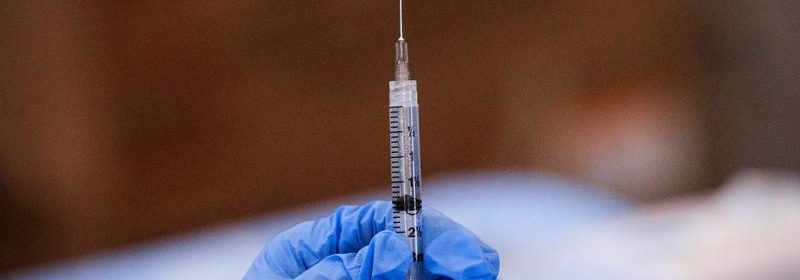U.S. rolls out COVID-19 vaccine for young children, ending long wait for some parents

(Reuters) -The United States on Wednesday began administering the COVID-19 vaccine to children ages 5 to 11, the latest group to become eligible for the shots that provide protection against the illness to recipients and those around them.
On Tuesday, the U.S. Centers for Disease Control and Prevention recommended the Pfizer Inc/BioNTech SE shot for broad use in that age group, four days after it was authorized by the U.S. Food and Drug Administration.
Only a limited number of the 15 million shots being distributed now will be available on Wednesday. They are expected to be more widely accessible at pediatrician’s offices, children’s hospitals and pharmacies next week.
For some U.S. parents, the news could not come soon enough.
Courtney Mitchell of Durham, North Carolina, said she woke up at 6 in the morning on Wednesday to book a COVID-19 vaccine appointment for her 5-year-old daughter, Jane.
“I felt like I was registering for coveted concert tickets,” said Mitchell, 42, about scheduling Jane’s initial shot for Saturday at a nearby Walgreens.
The big national pharmacy chains, Walgreens Boots Alliance, CVS Health and Rite Aid are among those offering appointments for this weekend.
Virginia Commonwealth University Health received the vaccine on Tuesday but will probably not start administering it until next week due to logistics and safety protocols, Director of Pharmacy Services Rodney Stilner told Reuters.
“For us to be able to receive the vaccine and even start today would just be like, almost impossible,” he said.
While about 58% of Americans are fully vaccinated against COVID-19, some 28 million children under 12 have not been eligible until now.
The 10-microgram shot of the Pfizer/BioNTech vaccine authorized for school-age kids – a third the strength given to adolescents and adults – offers protection from the Delta variant of the virus that has led to thousands of pediatric hospitalizations.
‘MUCH EASIER, MUCH SAFER’
The vaccine, shown to be more than 90% effective at preventing symptomatic infection in children, also provides an avenue for fewer quarantines or school closures and more normal activities and freedoms.
“I think it’s going to make the issue of schools much easier, much safer,” White House chief medical adviser Dr. Anthony Fauci told CNN on Wednesday.
Still, it remains unclear how many parents will jump at the chance. Even many who have been vaccinated themselves are more divided over whether to vaccinate their own younger children, given that severe COVID-19 is much less common for them.
Natasha Rodriguez had no such qualms about getting her 8-year-old daughter vaccinated. The 29-year-old patient account supervisor from Richmond, Virginia, said she was waiting to find out when the pediatric vaccine would be available in her area.
“I’ll be more comfortable allowing her to go on play dates as well as larger family gatherings and going to amusement parks when she gets her vaccine,” Rodriguez said. Her daughter Emma was “super excited” about getting the shot, Rodriguez added.
There were no new safety issues in Pfizer’s study of the vaccine in thousands of children, but there is also no long-term data for its use.
A few other countries, including China, are already vaccinating children. The European Union and Canadian regulators are currently considering Pfizer’s application for the vaccine in this younger age group.
So far, only Pfizer’s shot has been authorized for use in the United States for those under age 16.
Moderna Inc has delayed its request for authorization for its vaccine for children aged 6 to 11 and is waiting on an FDA review of safety data in connection with its application for 12- to 17-year olds.
The states with the highest adult COVID-19 vaccination rates are preparing bigger pushes to get children inoculated than states where hesitancy remains strong, potentially widening the gaps in protection nationwide, public health officials and experts said.
COVID-19 vaccines have emerged as yet another issue exposing deep political divides in the United States that led to opposing stances on vaccinations, face covering and other pandemic restrictions in various parts of the country.
Source: Read Full Article